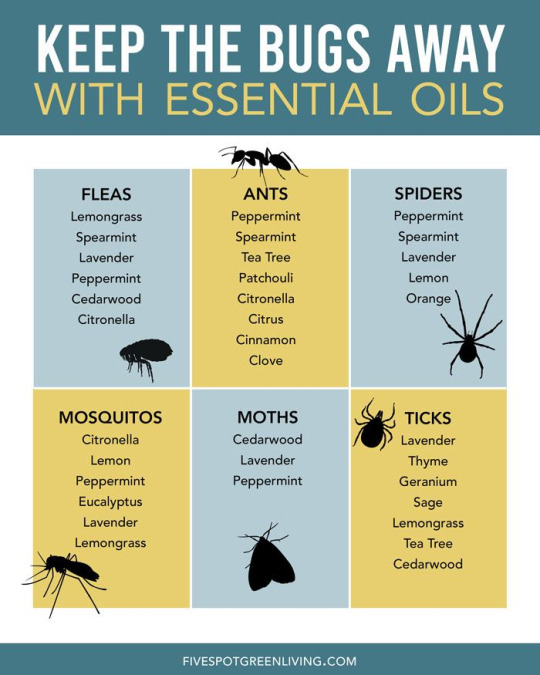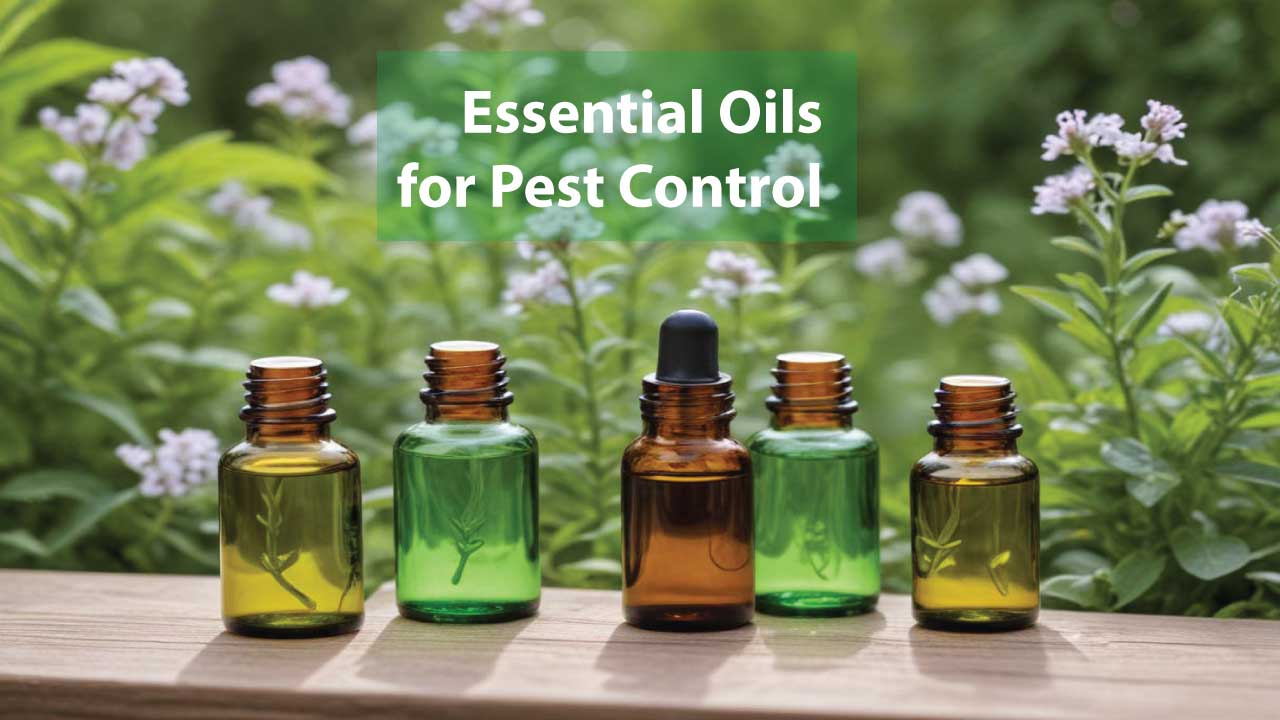Essential oils have gained popularity as natural remedies for a variety of issues, including pest control. Many people wonder if these aromatic oils can effectively repel or even eliminate bugs. This article explores how essential oils can be used as pesticides, covering their effectiveness, types, and safe usage.
About Essential Oil Bug Repellents
Essential oil bug repellents harness the natural properties of plant-derived oils to deter pests. Unlike chemical pesticides, essential oils offer a more eco-friendly approach to pest management. Their strong scents and bioactive compounds can interfere with insects’ sensory systems, making them effective at keeping bugs at bay. While essential oils might not eradicate pests completely, they can be an effective part of an integrated pest management strategy.
How to Deter Bugs with Essential Oils
To deter bugs using essential oils, you need to understand how these oils interact with pests. Essential oils work by disrupting the insects’ olfactory senses or causing irritation. When applied correctly, they can repel mosquitoes, flies, ants, and other common pests. Here’s a general guide on how to use them:
- Create a Spray Solution: Mix essential oils with water or a carrier oil to create a spray solution. Common ratios are about 10-15 drops of essential oil per ounce of water. Shake well before use.
- Apply to Affected Areas: Spray the solution on areas where bugs are problematic, such as around door frames, windowsills, or garden beds.
- Reapply Regularly: Essential oils can evaporate quickly, so reapply the solution every few days or after rain.
Essential Oils for Insect Repellent
Several essential oils are known for their insect-repelling properties. Here are some popular options:
- Lavender Oil: Known for its calming scent, lavender oil repels mosquitoes, moths, and flies.
- Peppermint Oil: Its strong menthol scent is effective against ants, spiders, and mice.
- Eucalyptus Oil: Useful for repelling mosquitoes and flies, eucalyptus oil also has antibacterial properties.
- Tea Tree Oil: This oil repels a wide range of insects, including mosquitoes, lice, and fleas.
- Citronella Oil: A well-known repellent for mosquitoes, citronella oil is often used in outdoor settings.

Various Types of Essential Oils for Pest Control
Different essential oils offer varying degrees of pest control efficacy. Here are some essential oils and the pests they are known to repel:
- Basil Oil: Effective against flies and mosquitoes.
- Thyme Oil: Repels mosquitoes and aphids.
- Rosemary Oil: Deters mosquitoes, flies, and other insects.
- Geranium Oil: Known for repelling mosquitoes and fleas.
- Clove Oil: Helps repel ants, cockroaches, and mosquitoes.
How to Use Essential Oils for Different Pests
Essential oils can be tailored to address specific pest issues:
- For Mosquitoes: Use a blend of citronella, eucalyptus, and lavender oils. Apply to exposed skin and outdoor areas.
- For Ants: Peppermint and tea tree oils are effective. Mix with water and spray around ant trails and entry points.
- For Flies: A combination of basil and clove oils can help. Apply to areas where flies are most active.
Safe Usage and Application of Essential Oils
While essential oils are natural, they must be used with care:
- Dilution: Always dilute essential oils before use to avoid skin irritation. Use a carrier oil (like coconut or jojoba oil) or mix with water.
- Patch Test: Perform a patch test on a small area of skin to check for allergic reactions.
- Avoid Direct Contact: Keep essential oils away from sensitive areas like the eyes and mucous membranes.
- Storage: Store essential oils in a cool, dark place to maintain their potency and prevent degradation.
Frequently Asked Questions about Essential Oils and Pest Control
1. Are essential oils effective for all pests?
While essential oils can repel many types of insects, they might not be as effective for severe infestations or for all pest species. They work best as part of a broader pest management strategy.
2. How long does the effect of essential oils last?
The effects of essential oils can last from a few hours to a few days, depending on the oil used, the concentration, and environmental factors. Reapplication may be necessary, especially after rain or heavy usage.
3. Can essential oils be used indoors?
Yes, essential oils can be used indoors, but ensure proper ventilation and avoid overuse. Some oils, like peppermint and lavender, are pleasant and can also help freshen the air.
4. Are there any safety concerns?
Essential oils are generally safe when used properly. However, they should be kept away from children and pets, as some oils can be toxic if ingested or if they come into direct contact with the skin.
By incorporating essential oils into your pest control regimen, you can enjoy a more natural and eco-friendly approach to managing bugs. While they may not replace chemical pesticides entirely, they offer a valuable option for those looking to reduce their reliance on synthetic products.
